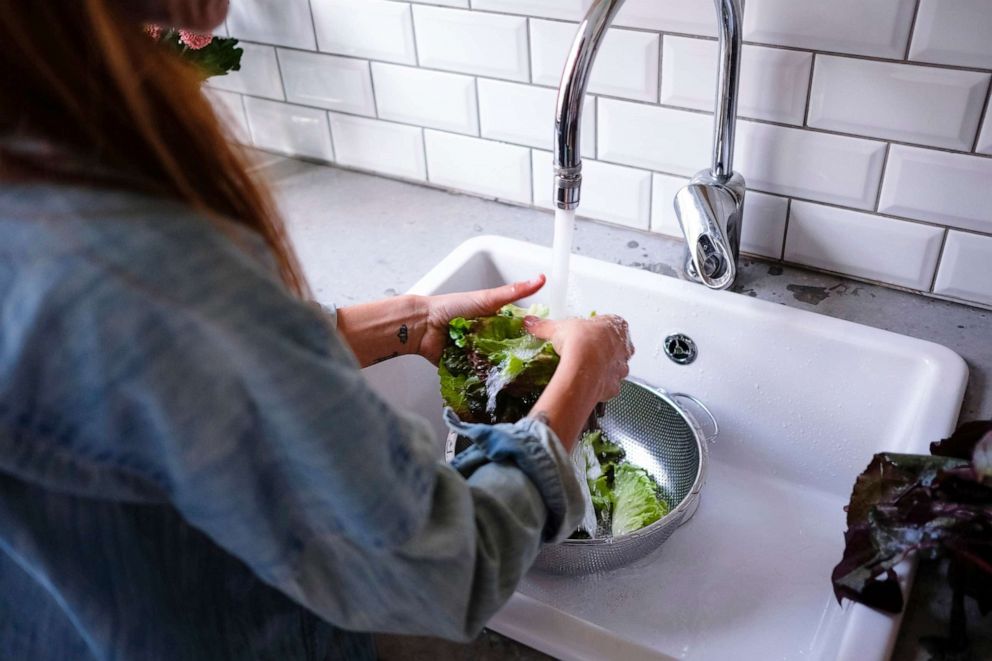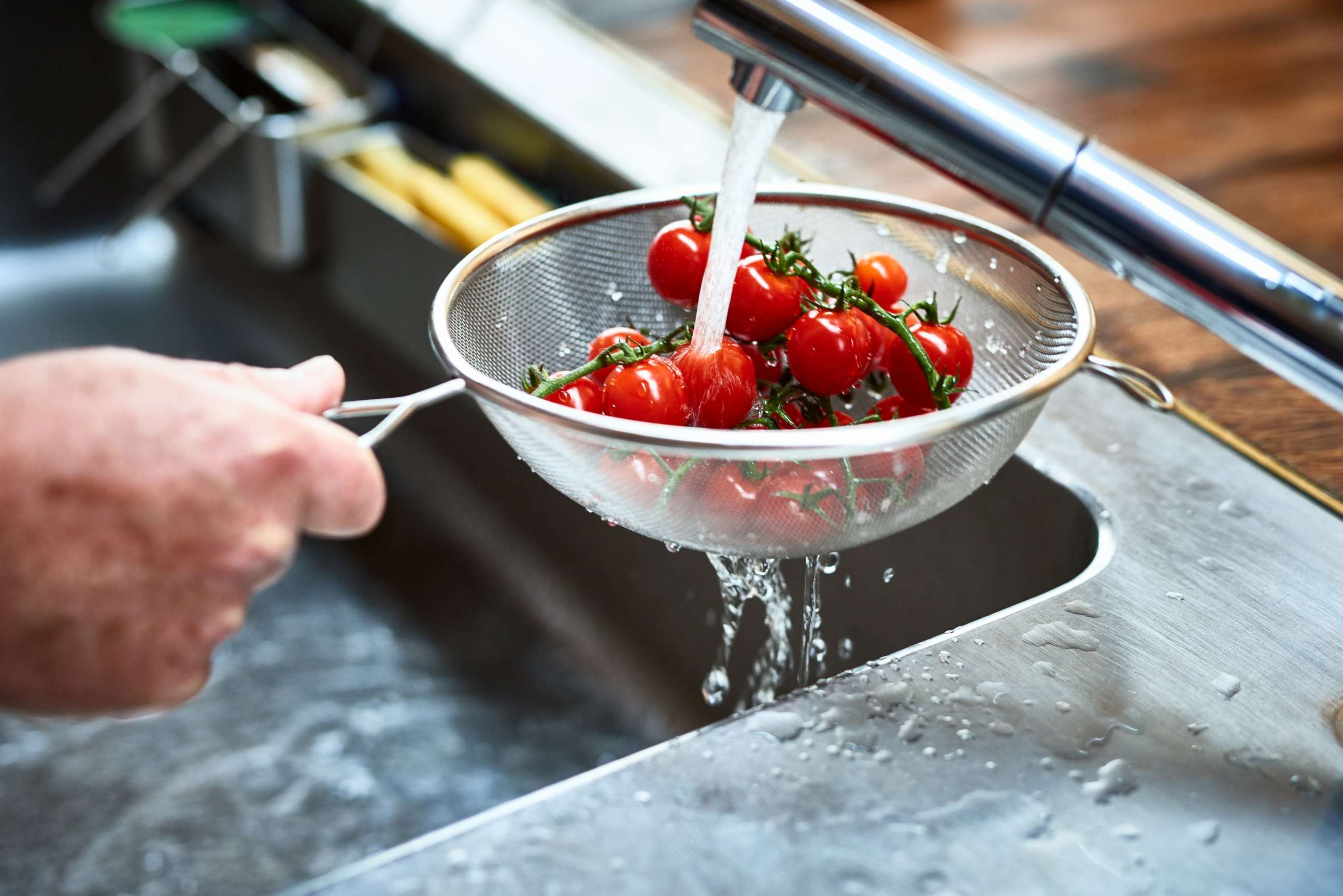Safe and effective ways to wash fresh produce
Wash fresh fruits and vegetables in clean, running water.
As Americans continue to do everything possible to ward off germs with hand sanitizers, disinfectant wipes and more amid the coronavirus pandemic, the easiest and most effective way to clean fresh fruits and veggies is with a good rinse of running water, no chemical solutions required.
Follow these simple steps from the U.S. Food and Drug Administration (FDA) for the safest ways to wash produce.
Wash Everything

Start with your own hands. Get a good wash for at least 20 seconds with soap and warm water both before and after handling fresh produce.
All whole fruits and vegetables should be washed under clean, running water before preparing and/or eating. Whether it grew in your own garden or came from a farmers' market or grocery store -- it all needs to be washed.
The FDA does not recommend washing fruits and vegetables with soap, detergent, bleach or any commercial produce wash.
Use a clean produce brush to scrub produce with a thick skin like cucumbers or melons.
For other foods like avocado, even if you do not plan to eat the skin, the FDA recommends washing the exterior before cutting so any dirt or bacteria won't be transferred from the surface when cutting or preparing.
For soft fruits and vegetables like tomatoes, rub the produce gently with your hands to loosen any dirt and remove outer leaves of lettuce and cabbage before washing them.
Dry all freshly washed produce with a clean cloth towel or a paper towel to further reduce bacteria that may be present on the surface.
If the produce has any bruises or blemishes, cut the damaged area off before preparing. If the produce looks rotten, throw it out.

What about "pre-washed" produce
Barbara Ingham, a food science extension specialist at the University of Wisconsin, recommends that people "wash all bagged produce, even if the bag says ‘pre-washed.'"
She also recommends using a colander to wash berries, herbs and greens and "spray them with a kitchen sink sprayer or gently turn the produce as you hold it under running water."
What about produce washes?
Though there are several products that claim to help remove additional dirt, pesticides and other bacterias from produce, no federal agency explicitly recommends the use of these products.
Click here for more resources on how to best store, handle and prepare fresh produce.
Should you wear gloves while you grocery shop?




